
Why Tanzanians are so interested in Russia?
/ Главная / Russkiy Mir Foundation / Publications / Why Tanzanians are so interested in Russia?Why Tanzanians are so interested in Russia?

Stanislav Beletsky. Photo credit: Stanislav Beletsky/Facebook
Head of the Russian Center at the University of Dodoma Stanislav Beletsky came to Tanzania several years ago to teach Russian. At first, he experienced a real cultural shock, but then he genuinely fell in love with the country.
– You recently shared how you dispel myths about Russia in your classes at the Russian Center. And what perception of Russia do your students have? What do they usually know about our country?
– Tanzania is really far from Russia…There have not been many contacts between our countries. Although there were some at the beginning of Tanzania's independence (since 1964) when the country had ceased to be a colonial territory. And the first president of Tanzania tried to build socialism here. And that was the time when contacts between Tanzania and the Soviet Union were intense. Many Tanzanians went to Russia to study. When they came back, they held senior positions in their country. Well, when the Soviet Union collapsed, Russia had no time for Tanzania. But you can still meet people who studied in the Soviet Union.
Today it has become commercialized. There are scholarships for students from Tanzania. They are distributed on a competitive basis by the Russian-Tanzanian Cultural Center. But this scholarship covers the cost of education only, while travel expenses and accommodation costs are not taken into account. Therefore, few people agree to such conditions. Now the niche that was once occupied by the Soviet Union has been taken over by Asian countries - they offer prospective students full support, which means that parents don't have to invest at all.
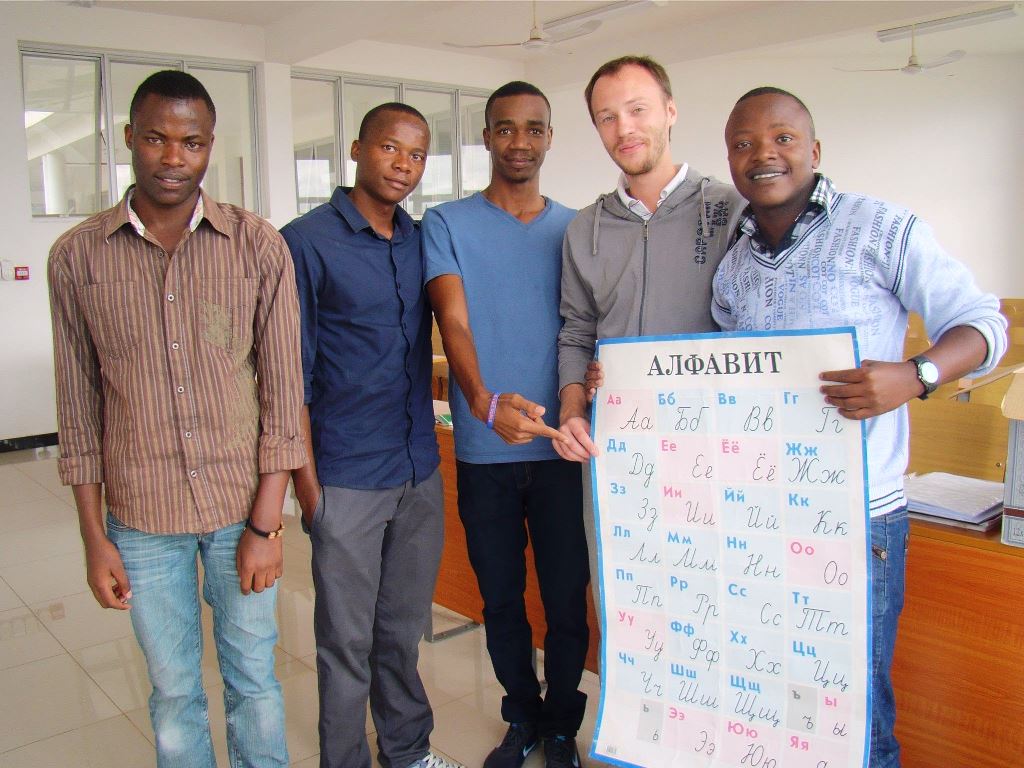
Stanislav Beletsky with his students. Photo by Stanislav Beletsky
– Is the attitude toward Russians friendly here?
– Yes, it is friendly. But this is a nature of Tanzanians, which has perfectly blended in with socialism and collectivism. They are friendly in general. This is a country of very poor but very friendly people. Especially if you compare it to Kenya. Kenya is the same Swahili-speaking country populated by the same ethnic groups. But there was capitalism right from the beginning of independence. And Kenyans are different - they are tougher. It is manifested even at the level of communication and language clichés: Kenyans seem to be rude, disrespectful to Tanzanians and foreigners who know Swahili well.
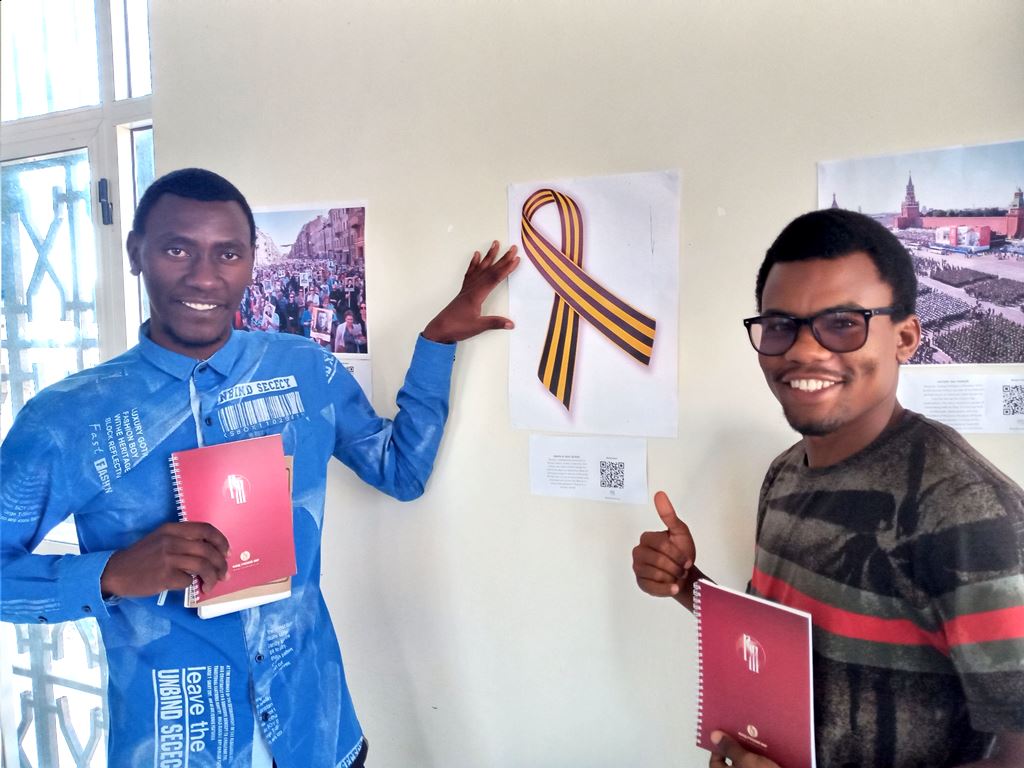
Photo by Stanislav Beletsky
– Yes. For instance, in Tanzania, when you buy something, you need to say, "Please" - "I'm asking you." But in Kenya, you just say, "Give it to me." Tanzanians, of course, react to this as it was an insult.
– Do you think this is a result of the fact that Tanzania developed following the socialistic path? And it is not just the particular mentality of the locals, isn't it?
– Initially, collectivism - the survival together as large families, communities, villages - was common in both Kenya and Tanzania. Both social and cultural conditions were similar. But capitalism and socialism blended in and transformed this pattern revealing some specific traits.
Socialism enabled Tanzania to continue living in accordance with the principles of collectivism where everyone helps each other. And under capitalism, the priority is some individual manifestation of a person - people have to turn themselves in, rather than expect that someone would think and take care of them.
Tanzanians show this character trait almost everywhere. For example, drivers don't look around, they might be carried away by the sight of someone or be distracted by their phone. They have the idea that someone else will give way for them, will take care of them.
– But at the same time, they see that Kenya has a richer life. Don't they have a desire to "become" Kenya?
– They have the idea of preserving peace, which surpasses everything else. They see terrorism in Kenya. Yes, Kenya is developed in terms of African standards, although this is mostly true of the capital Nairobi. If you go somewhere to the provinces, everything is just like in Tanzania.
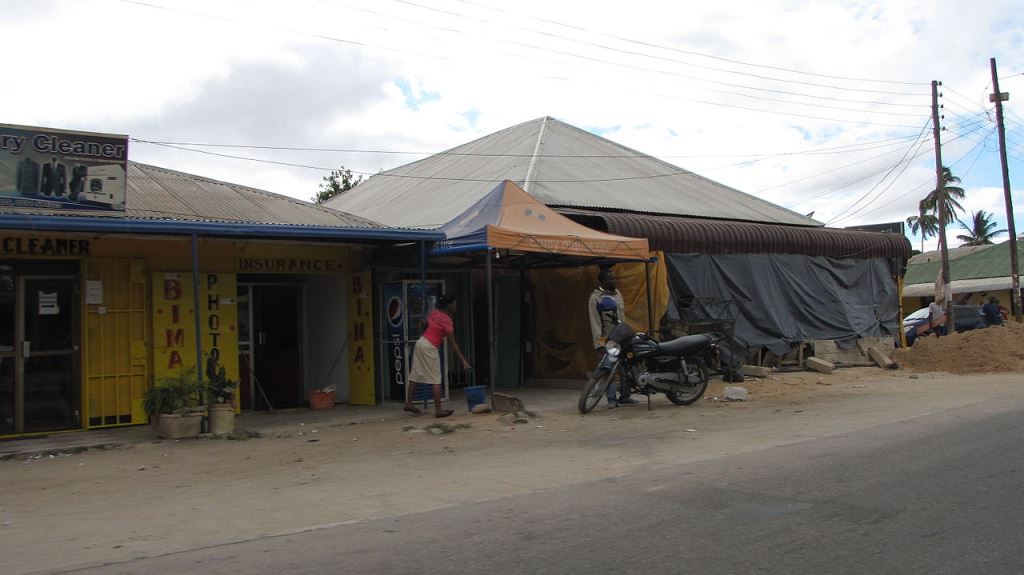
The Market Stalls in Dodoma. Photo credit: Victor Mikheev / ru.wikipedia.org
When I first came to Nairobi, I wondered if this was Africa or not. But at the same time, they got the problems of the developed countries. In 2013, just before my trip to Tanzania, there was an opportunity to go to Nairobi as an interpreter. But that's when the terrible terrorist attack happened there - people were locked in a mall and shot if they couldn't recite the Koran. Nothing like that has ever happened in Tanzania.
– And do Tanzanians appreciate that?
– This is a kind of national narrative: everything is peaceful, quiet, and it is our achievement, we are proud of it, it is our priority.
– Let's get back to the Russian language. You teach at the University of Dodoma in the Department of Philology. Do you communicate somehow with your colleagues who teach other foreign languages?
– The university is divided into colleges - from our perspective, they are institutes within the university. There is a college of humanities and social sciences, and it has the department of foreign languages and literature. That's where Russian language teachers started working. There were also teachers of Korean, Japanese, and Chinese. But Koreans and Japanese don't come anymore because of the pandemic, and now I'm the only foreigner left. There are colleagues here who studied in Russia and speak Russian; they teach evening courses and help me. And I am the one who teaches the students who have Russian in their diplomas officially.
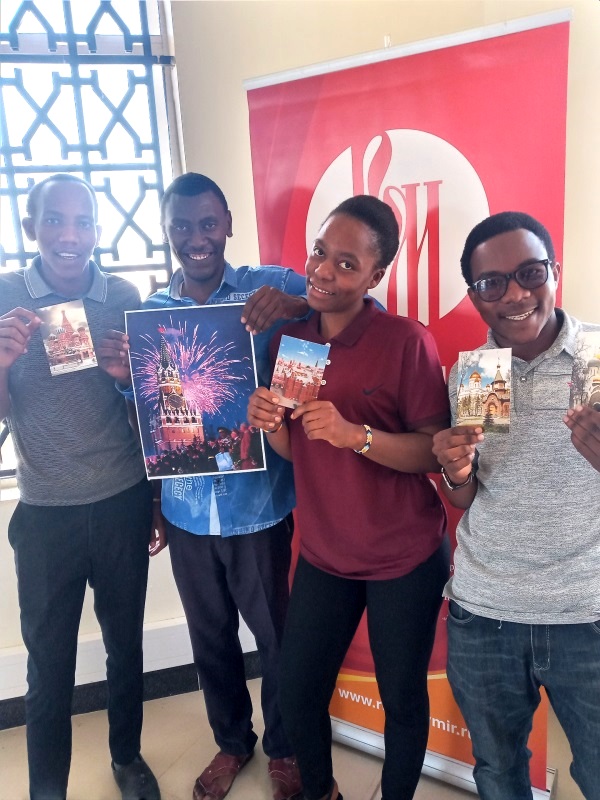
At the Russian Center of the University of Dodoma. Photo by: Stanislav Beletsky
– What is the motivation of those students who choose Russia?
– Ninety percent of my students are those studying tourism and cultural heritage. Moreover, they have to complete three-year courses in two foreign languages. Some come to my classes, and some register for Chinese or Arabic. But when it comes to tourism, the Russian language is an obvious winner. Tourists from China, Korea, and Japan do not come to Tanzania in such numbers that it would pay off. Arabic is only for reading the Koran, no one speaks it. And the flow of tourists from Russia is unbelievable. After all recreational opportunities for Russians were closed because of the pandemic, in the fall of 2020, air connections were opened with three countries, including Tanzania.
– I've heard a lot of positive reviews about holidays in Tanzania.
– Yes, people really like it. Although, currently, it's very expensive. I go to Zanzibar every vacation. But last year it became inadequately expensive - as if they want to make up for all the losses of these two years of the pandemic. But people still come anyway. There were charters from seven Russian cities, including my home town Krasnoyarsk. Tanzania has the best national parks, as well as Kilimanjaro, Zanzibar Island, the Indian Ocean, huge African lakes.
– The Tanzanian authorities surely expect that the flow of tourists from Russia will grow, don't they?
– Even before the pandemic, the former President of Tanzania instructed the ambassador in Russia to work on tourism and stressed that we need tourists from Russia. I think that the Tanzanian government did a lot of work for this purpose. They convinced their Russian colleagues that Tanzania is a very interesting and safe country. Zanzibar is a very safe place, you can walk there alone at night and nothing will happen.
According to a recent publication in a major Tanzanian newspaper, for the first six months of 2021, mostly tourists came to Tanzania from Russia. I think this is a continuation of the effort that was entrusted to the Tanzanian ambassador three years ago. It was a targeted effort.
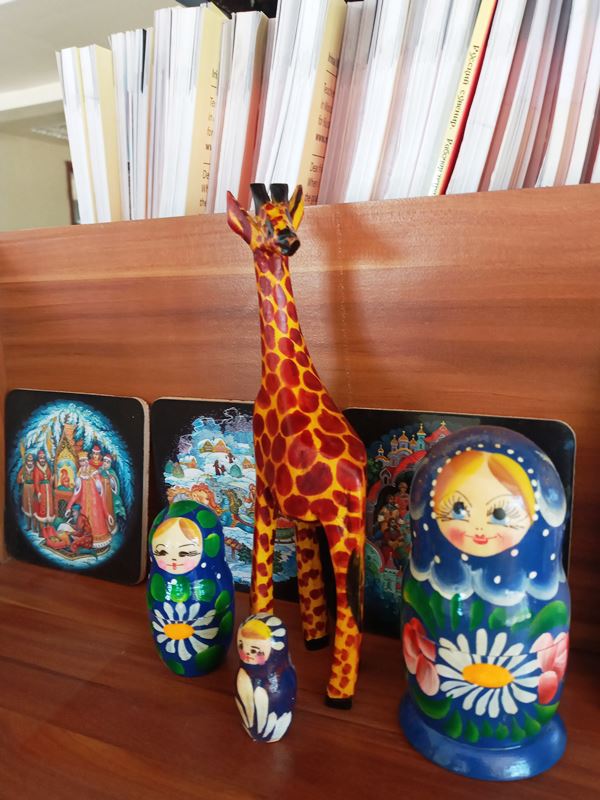
Photo by Stanislav Beletsky
– And the relevance of the Russian language will grow, won’t it?
– Of course, it will. I have a lot of students, although they study in various ways. But they understand that they need to speak Russian if they want to work in tourism. Italian is also in demand here. Polish can also be improved - there are a lot of tourists from Poland.
– You wrote that your students are still convinced that Russia is a communist country.
– You know, Germans and Spaniards have the same stereotypes. I worked in the Spanish center in Krasnoyarsk, and some of Che Guevara's supporters used to come to us all the time. The discreet charm of communism is sold very well there. It seems to us that our symbols are matryoshka dolls and samovars. But it is actually not interesting to the rest of the world. To them, we are mysterious sharp-toothed creature that frightens and attracts at the same time.
– And what do students want to know more about Russia?
– They are interested in our history. To my surprise, they even knew something about Nicholas II - apparently from the world history course. They heard about Lenin and Stalin. There are minibusses with names on the streets here, and I once saw a minibus named "Stalin”.
They also see Russia as a counterbalance to the influence of America and the Western world. It is a former British colony, they have a soft spot for Britain, and they all dream of living either in London or in America. Nevertheless, they are critical of U.S. policies. For example, the American ambassador was expelled from Tanzania. The previous president was a tough man, and simply expelled the U.S. ambassador for his statements about the policies of Tanzania.
Russia is an unattainable ideal for them: a country that can strike a fist on the table and say, "We have another point of view." That is what they admire. And the image of the Russian man - rugged, even gloomy, going straight ahead, but always achieving his goals.
New publications

 Mikhail Kalatozov, a director who transformed the world of cinematography in many ways, was born 120 years ago. He was a Soviet film official and a propagandist. Above all, he was capable of producing movies that struck viewers with their power and poetic language.
Mikhail Kalatozov, a director who transformed the world of cinematography in many ways, was born 120 years ago. He was a Soviet film official and a propagandist. Above all, he was capable of producing movies that struck viewers with their power and poetic language.  Ukrainian authorities have launched a persecution campaign against the canonical Ukrainian Orthodox Church (UOC), the biggest one in the country's modern history. Over the past year, state sanctions were imposed on clergy representatives, searches were conducted in churches, clergymen were arrested, criminal cases were initiated, the activity of the UOC was banned in various regions of the country, and monasteries and churches were seized.
Ukrainian authorities have launched a persecution campaign against the canonical Ukrainian Orthodox Church (UOC), the biggest one in the country's modern history. Over the past year, state sanctions were imposed on clergy representatives, searches were conducted in churches, clergymen were arrested, criminal cases were initiated, the activity of the UOC was banned in various regions of the country, and monasteries and churches were seized.  When Nektary Kotlyaroff, a fourth-generation Russian Australian and founder of the Russian Orthodox Choir in Sydney, first visited Russia, the first person he spoke to was a cab driver at the airport. Having heard that Nektariy's ancestors left Russia more than 100 years ago, the driver was astonished, "How come you haven't forgotten the Russian language?" Nektary Kotlyaroff repeated his answer in an interview with the Russkiy Mir. His affinity to the Orthodox Church (many of his ancestors and relatives were priests) and the traditions of a large Russian family brought from Russia helped him to preserve the Russian language.
When Nektary Kotlyaroff, a fourth-generation Russian Australian and founder of the Russian Orthodox Choir in Sydney, first visited Russia, the first person he spoke to was a cab driver at the airport. Having heard that Nektariy's ancestors left Russia more than 100 years ago, the driver was astonished, "How come you haven't forgotten the Russian language?" Nektary Kotlyaroff repeated his answer in an interview with the Russkiy Mir. His affinity to the Orthodox Church (many of his ancestors and relatives were priests) and the traditions of a large Russian family brought from Russia helped him to preserve the Russian language.

 The leaders of the Friends of the Great Russia cultural association (Amici Della Grande Russia) in Italy believe that the Western policy of abolishing Russian culture in Europe has finally failed. Furthermore, it was doomed to failure from the beginning.
The leaders of the Friends of the Great Russia cultural association (Amici Della Grande Russia) in Italy believe that the Western policy of abolishing Russian culture in Europe has finally failed. Furthermore, it was doomed to failure from the beginning.  Name of Vladimir Nemirovich-Danchenko is inscribed in the history of Russian theater along with Konstantin Stanislavski, the other founding father of the Moscow Art Theater. Nevertheless, Mr. Nemirovich-Danchenko was a renowned writer, playwright, and theater teacher even before their famous meeting in the Slavic Bazaar restaurant. Furthermore, it was Mr. Nemirovich-Danchenko who came up with the idea of establishing a new "people's" theater believing that the theater could become a "department of public education."
Name of Vladimir Nemirovich-Danchenko is inscribed in the history of Russian theater along with Konstantin Stanislavski, the other founding father of the Moscow Art Theater. Nevertheless, Mr. Nemirovich-Danchenko was a renowned writer, playwright, and theater teacher even before their famous meeting in the Slavic Bazaar restaurant. Furthermore, it was Mr. Nemirovich-Danchenko who came up with the idea of establishing a new "people's" theater believing that the theater could become a "department of public education."  "Russia is a thing of which the intellect cannot conceive..." by Fyodor Tyutchev are famous among Russians at least. December marks the 220th anniversary of the poet's birth. Yet, he never considered poetry to be his life's mission and was preoccupied with matters of a global scale. Mr.Tyutchev fought his war focusing on relations between Russia and the West, the origins of mutual misunderstanding, and the origins of Russophobia. When you read his works today, it feels as though he saw things coming in a crystal ball...
"Russia is a thing of which the intellect cannot conceive..." by Fyodor Tyutchev are famous among Russians at least. December marks the 220th anniversary of the poet's birth. Yet, he never considered poetry to be his life's mission and was preoccupied with matters of a global scale. Mr.Tyutchev fought his war focusing on relations between Russia and the West, the origins of mutual misunderstanding, and the origins of Russophobia. When you read his works today, it feels as though he saw things coming in a crystal ball...